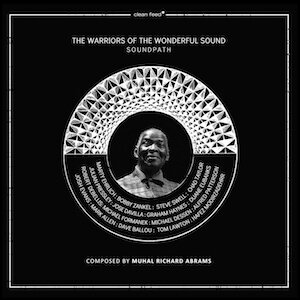Label: 577 Records, 2020
Personnel - Sabir Mateen: tenor saxophone, voice; Christopher Dell: vibes; Christian Ramond: double bass; Klaus Kugel: drums.
This free jazz session, recorded live at A-train in Berlin in 2012, brings together Philadelphia-born, New York-based saxophonist Sabir Mateen and a German rhythm section composed of vibraphonist Christopher Dell, bassist Christian Ramond and drummer Klaus Kugel. Creation comprises three parts, the last of which is a bonus track only available in the digital format.
“Creation (Part One)” enters upon a straightforward storytelling with nimble tenor phrases, digressive vibraphone movements and loose groundwork from bass and drums. The often jittery drumming goes against the soft vibes but shares the same state of mind of Mateen, who improvises with anxious fervor, expressing lucid motifs that exclaim, ask and sometimes answer. For this, the saxophonist employs a timbral alchemy that applies to the whole range of his instrument.
Clocking in at 31 minutes, the second movement starts with a steady flux of vibes, bass and drums, but its textural surface is not always maintained even. On top of this, Mateen unleashes raucous staccatos and multiphonics, fluttering whistling blows and winding phrases occasionally enhancing ascendant and descendant movements through a pinned note as a reference. These oblique trajectories are quite thrilling. At times the group goes for cathartic left turns and sharp angles as they muscle up the procedures, on other occasions they swing in an open manner, virtually soliciting the scat-singing abilities of the American frontman. The piece doesn’t come to an end without Kugel’s rollicking drum solo.
The third part is perhaps the one shrouded in louder and more intense sonic waves, generating a similar sense of engagement and freedom.
Grade B
Favorite Tracks:
01 - Creation (Part One)










































